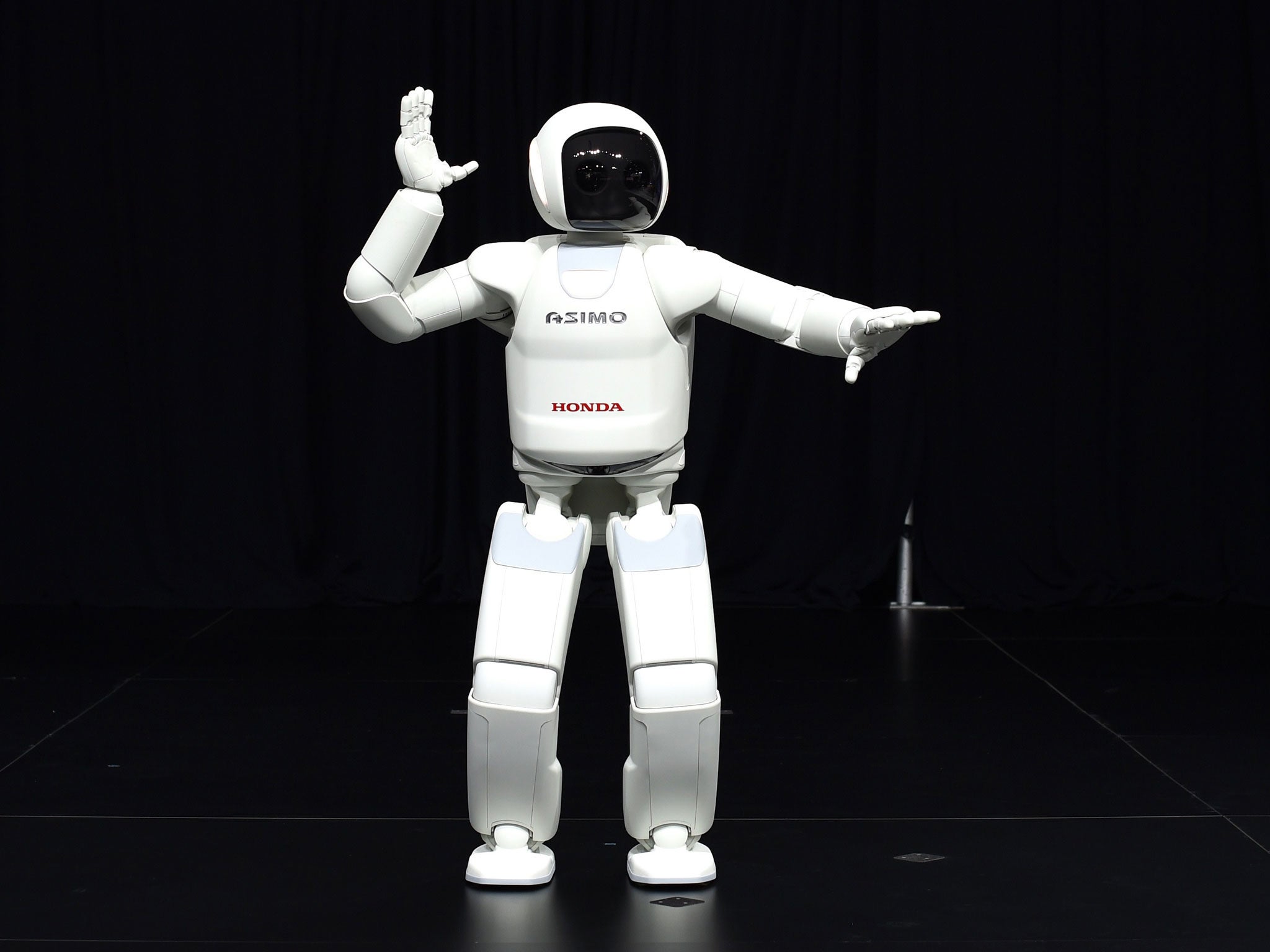How fearful should we be about the rise of the robots?
The Foundation for Responsible Robotics this week warned us that we are rushing into a potentially perilous future of autonomous weapons and automated household helpers. Jamie Nimmo asks if the new world will really be so dystopian

Anyone who has had the pleasure of watching the blockbuster film I, Robot starring Will Smith could be forgiven for not taking the “robots could take over the-world” argument too seriously.
The plot of the futuristic sci-fi romp is predictable – with some rather robotic acting to boot. Everyone in the movie loves robots – except Will Smith, who doesn’t trust them. The robots turn against humans, everyone wishes they’d listened to Will, and then our hero saves the day.
The plot seems far-fetched. But could the movie-makers have been on to something? This week came the launch of the Foundation for Responsible Robotics (FRR), an organisation formed by leading robotics academics whose job will be to address the “urgent societal issues” highlighted by the rise of the machines.
The foundation is chaired by Noel Sharkey, a renowned expert in the field and professor of artificial intelligence (AI) and robotics at the University of Sheffield. Professor Sharkey wants the foundation to help to shape public policy on robots. The purpose is to avoid the kind of nasty wake-up call seen in I, Robot.
“We are rushing headlong into the robotics revolution without consideration for the many unforeseen problems lying around the corner,” Professor Sharkey said. “It is time now to step back and think hard about the future of the technology before it sneaks up and bites us when we are least expecting it.”
The FRR argues that it is difficult for policymakers and legislators to keep up with the pace of development. That is where the scientists, researchers and manufacturers must play their part, it says.
The foundation sees winning public trust as a top priority, fearing that early mistakes “could set the field back by many years and stifle research”.
So what “unforeseen problems” is Professor Sharkey referring to? Warfare is the main one, especially in the wake of the recent terror attacks. He has concerns over the role of autonomous weapons, questioning whether it is right to let a machine kill a human.
Professor Sharkey is also chairman of the International Committee for Robot Arms Control, an organisation he co-founded six years ago to promote “the peaceful use of robotics” and the regulation of automated weapons.
With security now a top priority for many Western states, the US is investing heavily in developing robotic weapons, which would mean being able to fire rounds of ammunition without risking any soldiers’ lives – in effect the next step from unmanned drone strikes.
Professor Sharkey’s fear is what happens when everybody has these tools. Some believe it could be the downfall of the human race.
Nor is it just on the battlefield where change is coming. Robots are starting to automate many aspects of our lives.
According to the International Federation of Robotics, there will be 31 million so-called “service robots” helping out in households by 2018, aiding in anything from cooking to caring for children and the elderly. Technological advances mean that while the market for industrial robots, such as those used to make cars, is expected to rise modestly, there could be a huge surge in demand for service robots, used in households.
However, there are concerns about the safety of the machines and over whether installing robots as carers will lead to neglect. Some fear the technology could be vulnerable to cyber-attacks, especially in the early stages. Could hackers break in and gain control of a domestic robot, driverless car or drone?
Then there is the issue of mass job culls, which has sparked panic that all factory workers will eventually be supplanted by robots. However, Jonathan Crane, chief commercial officer of IPsoft, the American AI company behind Amelia, the world’s most advanced virtual assistant, believes the robot revolution is a good thing. “There are a lot of things in work that are repetitious, tactical, boring and mundane,” he told The Independent. “If you could automate some of those functions, you would always do that, just like hiring an assistant.”
He added: “Innovation sparks the investment of capital and capital spawns growth. If you think about the quality of manufacturing and how it was aided by the use of robotics, there’s no question that the quality of car manufacturing went up.
“Now we’re talking about robots as personal companions. I don’t think we want to be fearful of that. I don’t have any problems with the thoughts associated with how we deploy robotics or digital labour… but let’s not wave red flags that the Terminator’s coming, because that’s frightening people.”
Professor Sharkey and his team at the FRR insist that they do not want to stifle this development – rather to make sure responsibility is at the forefront of decision-making so that we are aware of the potential consequences.
The tagline for I, Robot was: “One man saw it coming”. In years to come, Professor Sharkey does not want people to refer to him as that man. He’d rather there was no problem to fix in the first place.
Join our commenting forum
Join thought-provoking conversations, follow other Independent readers and see their replies
Comments
Bookmark popover
Removed from bookmarks